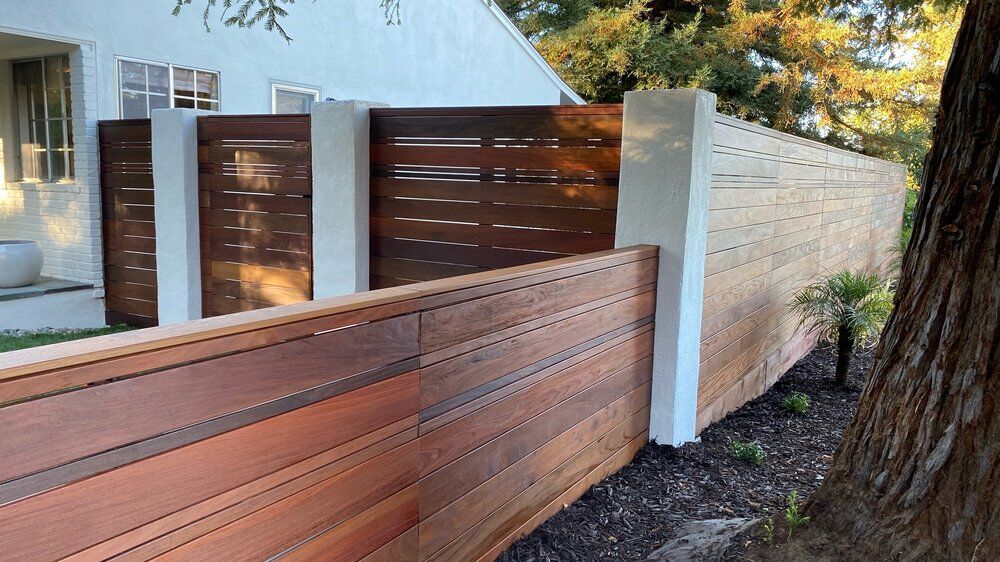All Categories
Featured
What Types of Fence Products Are Available for Residential and Commercial Projects?
Secure fencing is a necessary aspect in both domestic and industrial residential properties, offering protection, privacy, and aesthetic charm. With countless fencing materials offered today, choosing the right option relies on your particular requirements, budget, and the purpose of the fencing. Here's a summary of one of the most prominent fence products and their benefits to aid you make a notified choice.- Wood Fencing. Timber is just one of the most versatile and standard products for secure fencing. Its natural appeal makes it a preferred choice for domestic jobs.
Benefits of Wood Secure Fencing:
Aesthetic Allure: Readily available in a range of styles, consisting of picket, split rail, and privacy fencings. Customizable: Can be painted or stained to match your building's exterior. Price: Timber fences are cost-efficient, especially for smaller sized tasks. Considerations: Wood calls for regular upkeep to avoid warping, rot, and parasite damage.
- Plastic Fencing. Vinyl fencing has acquired popularity for its longevity and low-maintenance high qualities, making it suitable for both business and domestic residential or commercial properties.
Advantages of Vinyl Fencing:
Durability: Immune to rot, insects, and rough weather. Reduced Upkeep: No painting or discoloration called for; a simple laundry maintains it looking new. Selection of Designs: Imitates the appearance of timber, readily available in numerous shades and styles. Factors to consider: Greater first price contrasted to wood, yet the long life frequently offsets this expense.
- Aluminum Fencing. Aluminum is a light-weight yet strong material, frequently made use of for decorative or safety purposes in both business and residential settings.
Advantages of Light Weight Aluminum Fencing:

Corrosion Resistance: Suitable for damp climates or locations near water. Personalized Designs: Available in a series of styles and colors. Low Upkeep: Requires marginal maintenance in time. Factors to consider: While not as durable as steel, it offers a great equilibrium of longevity and style.
- Chain-Link Secure fencing. Chain-link secure fencing is a functional and economical choice, frequently utilized in industrial buildings, schools, and commercial locations.
Advantages of Chain-Link Fencing:
Cost: One of the most cost-effective choices for large-scale projects. Longevity: Stands up well to weather and hefty usage. Exposure: Permits clear sightlines while offering security. Factors to consider: Offers restricted privacy and may not fit all visual choices.
- Wrought Iron Secure Fencing. Wrought iron is a classic material known for its toughness and elegance, typically utilized in upscale property and industrial homes.
Advantages of Wrought Iron Fence:
Durability: Resilient and exceptionally resilient with correct maintenance. Customized Layouts: Can be made into complex patterns for a glamorous appearance. Security: Offers durable defense versus intruders. Factors to consider: Calls for regular maintenance to avoid corrosion and is usually more costly than other products.
- Composite Fencing. Compound secure fencing incorporates timber fibers and plastic for a material that is both long lasting and attractive.
Benefits of Compound Fence:

Eco-Friendly: Commonly made from recycled products. Reduced Upkeep: Immune to rot, pests, and climate damage. Visual Adaptability: Simulates the look of natural wood without the maintenance. Considerations: Greater ahead of time price contrasted to traditional wood fencings.
- Steel Fence. Steel is a durable material that uses excellent protection, making it a popular option for commercial and industrial tasks.
Benefits of Steel Fence:
Strength: Deals premium resilience and security. Longevity: Immune to extreme weather and effects. Modern Appearance: Can be powder-coated in various shades for a streamlined appearance. Factors to consider: Higher cost and weight compared to aluminum or chain-link choices.
- Bamboo Secure fencing. Bamboo fencing is a green option, typically made use of in homes for a natural, exotic look.
Benefits of Bamboo Secure Fencing:
Sustainability: Bamboo is a renewable energy. Visual Allure: Gives a one-of-a-kind and natural look. Economical: Often much less expensive than timber or vinyl. Factors to consider: Finest matched for light climates, as extreme weather condition can trigger damage.
Picking the Right Material. When choosing fencing products, consider these factors:
Objective: Is the fence for personal privacy, safety and security, or appearances? Budget plan: Some products, like chain-link or timber, are more inexpensive than premium choices like wrought iron. Maintenance: Low-maintenance materials like plastic or compound might save time and effort in the long run. Setting: Factors like climate problems and exposure to dampness can influence the long life of particular materials. Verdict. Whether you need fence for a comfy backyard or a vast commercial home, there's a material to fit your needs. By picking the appropriate secure fencing material, you can improve the protection, performance, and aesthetic charm of your building while remaining within your budget.
Latest Posts
Find Brake Repair & More: Full Repair Options from Montclare Auto Repair
Published en
1 min read
Learn About Montclare Auto Repair’s Leading Car Care Solutions and Why Drivers Trust Them
Published en
1 min read
Comprehending Roof Covering Guarantees: What Homeowners Ought To Know
Published en
1 min read
More
Latest Posts
Find Brake Repair & More: Full Repair Options from Montclare Auto Repair
Published May 26, 25
1 min read
Learn About Montclare Auto Repair’s Leading Car Care Solutions and Why Drivers Trust Them
Published May 25, 25
1 min read
Comprehending Roof Covering Guarantees: What Homeowners Ought To Know
Published May 24, 25
1 min read